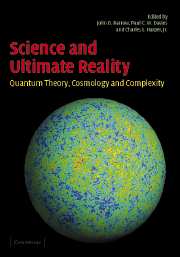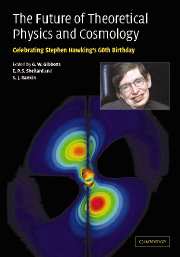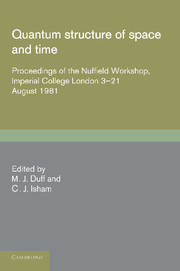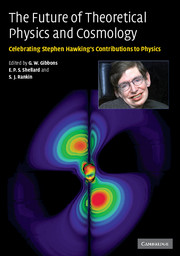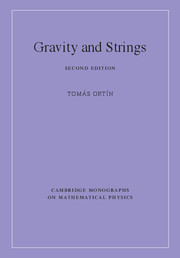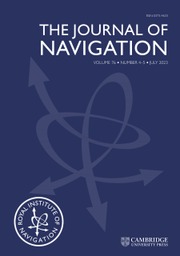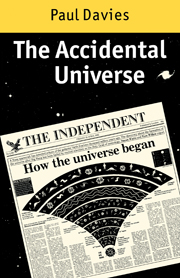Science and Ultimate Reality
This preview of the future of physics comprises contributions from recognized authorities inspired by the pioneering work of John Wheeler. Quantum theory represents a unifying theme within the book, as it relates to the topics of the nature of physical reality, cosmic inflation, the arrow of time, models of the universe, superstrings, quantum gravity and cosmology. Attempts to formulate a final unification theory of physics are also considered, along with the existence of hidden dimensions of space, hidden cosmic matter, and the strange world of quantum technology.
John Archibald Wheeler is one of the most influential scientists of the twentieth century. His extraordinary career has spanned momentous advances in physics, from the birth of the nuclear age to the conception of the quantum computer. Famous for coining the term "black hole," Professor Wheeler helped lay the foundations for the rebirth of gravitation as a mainstream branch of science, triggering the explosive growth in astrophysics and cosmology that followed. His early contributions to physics include the S matrix, the theory of nuclear rotation (with Edward Teller), the theory of nuclear fission (with Niels Bohr), action-at-a-distance electrodynamics (with Richard Feynman), positrons as backward-in-time electrons, the universal Fermi interaction (with Jayme Tiomno), muonic atoms, and the collective model of the nucleus. His inimitable style of thinking, quirky wit, and love of the bizarre have inspired generations of physicists.
- Contributions from top researchers in quantum theory, cosmology and theoretical physics
- Provides a fascinating overview, exploring unanswered questions and looking at future directions for research
- Celebrates the wide variety of areas in which John A. Wheeler has been involved
Reviews & endorsements
"This preview of the future of physics comprises contributions from recognized authorities inspired by the pioneering work of John Wheeler. His inimitable style of thinking, quirky wit, and love of the bizarre have inspired generations of physicists." Astronomical Society of the Pacific
"This is theoretical physics at its best."
Daniele Oriti, Mathematical Reviews
Product details
June 2004Hardback
9780521831130
742 pages
254 × 182 × 38 mm
1.641kg
61 b/w illus.
Available
Table of Contents
- Foreword John A. Wheeler
- Editor's preface John D. Barrow, Paul Davies and Charles Harper, Jr.
- Preface Freeman J. Dyson
- Part I. An Overview of the Contributions of John Archibald Wheeler:
- 1. John Archibald Wheeler and the clash of ideas Paul C. W. Davies
- Part II. An Historian's Tribute to John Archibald Wheeler and Scientific Speculation Through the Ages:
- 2. The heritage of Heraclitus: John Archibald Wheeler and the itch to speculate Jaroslav Pelikan
- Part III. Quantum Reality - Theory:
- 3. Why is nature described by quantum theory? Lucien Hardy
- 4. Thought experiments in honor of John Wheeler Freeman J. Dyson
- 5. It from qubit David Deutsch
- 6. The wave function: it or bit? H. Dieter Zeh
- 7. Quantum Darwinism and envariance Wojciech H. Zurek
- 8. Using qubits to learn about it Juan Pablo Paz
- 9. Quantum gravity as an ordinary gauge theory Juan M. Maldacena
- 10. The Everett interpretation of quantum mechanics Bryce S. DeWitt
- Part IV. Quantum Reality - Experiment:
- 11. Why the quantum? It from bit? A participatory universe? Three far-reaching, visionary questions from John Archibald Wheeler and how they inspired a quantum experimentalist Anton Zeilinger
- 12. Speakable and unspeakable, past and future Aephraim M. Steinberg
- 13. Conceptual tensions between quantum mechanics and general relativity: are there experimental consequences? Raymond Y. Chiao
- 14. Breeding non-local Schrödinger cats: a thought experiment to explore the quantum classical boundary Serge Haroche
- 15. Quantum erasing the nature of reality - or, perhaps, the reality of nature? Paul G. Kwiat and Berthold-Georg Englert
- 16. Quantum feedback and the quantum-classical transition Hideo Mabuchi
- 17. What quantum computers may tell us about quantum mechanics Christopher R. Monroe
- Part V. Big Questions in Cosmology:
- 18. Cosmic inflation and the arrow of time Andreas Albrecht
- 19. Cosmology and immutability John D. Barrow
- 20. Quantum cosmology, inflation, and the anthropic principle Andrei Linde
- 21. Parallel universes Max Tegmark
- 22. Quantum theories of gravity: results and prospects Lee Smolin
- 23. A genuinely evolving universe Joao Magueijo
- 24. Planck-scale models of the universe Fotini G. Markopoulou
- 25. Implications of additional spatial dimensions to questions in cosmology Lisa Randall
- Part VI. Emergence, Life, and Related Topics:
- 26. Emergence: us from it Philip D. Clayton
- 27. True complexity and its associated ontology George F. R. Ellis
- 28. The three origins: cosmos, life and mind Marcelo Gleiser
- 29. Autonomous agents Stuart A. Kauffman
- 30. To see a world in a grain of sand Shou-Cheng Zhang
- Appendix A. Science and ultimate reality program committees
- Appendix B. Young researchers competition in honor of John Archibald Wheeler for physics graduate students, post-doctoral fellows, and young faculty.

